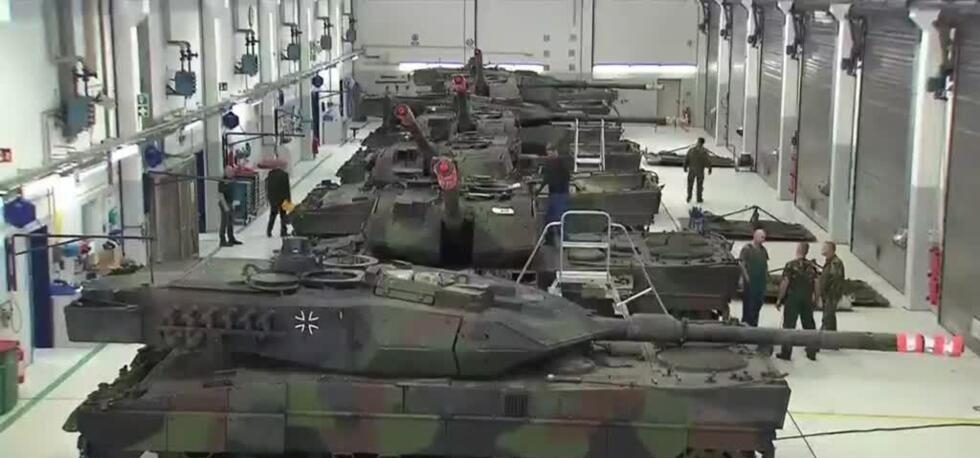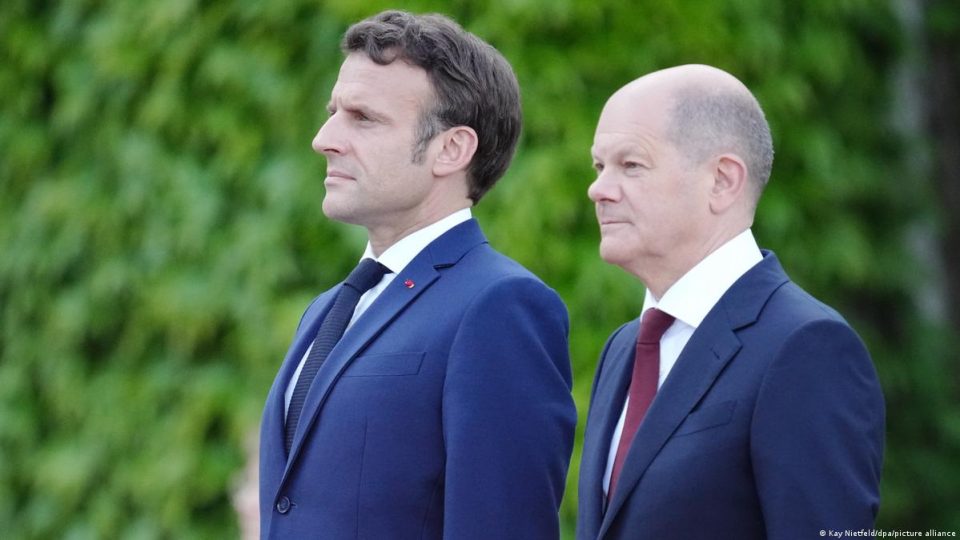FALCON POWERS – Paris and Berlin are at loggerheads over military aid to Ukraine. But can the two European powerhouses unify behind Kyiv?
At a conference on Ukraine in Paris at the end of February 2024, French President Emmanuel Macron did not rule out putting boots on the ground in Ukraine.
The announcement didn’t go down well across the Rhine.
A few hours later, Germany’s Olaf Scholz answered “Europe and NATO will not send any soldiers to Ukraine.”
Macron’s statement was “a red line for Germany”, which fears being passed off as “warmonger” in the eyes of Vladimir Putin, according to Dr Carolyn Moser, director of a research group at Heidelberg’s Max Planck Institute of International Law and holder of the Alfred Grosser Chair at Sciences Po.

During the same conference, the French leader did not miss the opportunity to recall that “many, around this table, were only considering sending sleeping bags and helmets” to Ukraine.
It was a jibe at Berlin, which announced at the end of January 2022 it would send 5,000 helmets to Kyiv – but not arms. One month later Russian tanks rolled across the border.
The situation has changed a lot since then.

After the United States, Germany is now the second largest contributor of aid to Ukraine.
According to the Kiel Institute, Germany has committed to providing €17 billion in aid for Kyiv when France has only promised €1.8bn.
“France was less hesitant to deliver heavy weapons, but it made it much less public. And until now, it hesitates to say exactly what it delivered and to what extent. It justifies it by the fact that it could then reveal defence secrets,” said expert Moser.
Lack of communication is also a source of tension between Berlin and Paris.
Faced with Russia’s full-scale invasion of Ukraine, Scholz announced at the end of February 2022 an envelope of €100bn to modernise the German army.
France regrets not having been informed beforehand.
Another thorn in the side of the Franco-German relationship is the European Sky Shield Initiative.
Initiated by Germany, the project, which includes 21 NATO countries but does not include France, consists of German (IRIS-T), American (PATRIOT) and Israeli (Arrow-3) systems.
These dissonances already existed before Moscow’s assault on Ukraine. In 2017, Macron made a speech at the Sorbonne, calling for an overhaul of European defence – it fell on deaf ears across the Rhine.
The French and German visions of European defence differ fundamentally on one point: the role of NATO. “While France aspires to a certain autonomy, Germany prefers a transatlantic approach,” explains Moser.

Series of disagreements
Defence is just part of a series of long-standing disagreements between Paris and Berlin.
Energy has historically been a major divide between the two. While France depends on nuclear power – providing around 70% of its electricity – Germany shut down its last nuclear power plant in 2023.
The war in Ukraine is now bringing the energy issue back on the table because Germany, a major consumer of Russian gas, must seek supplies elsewhere.


